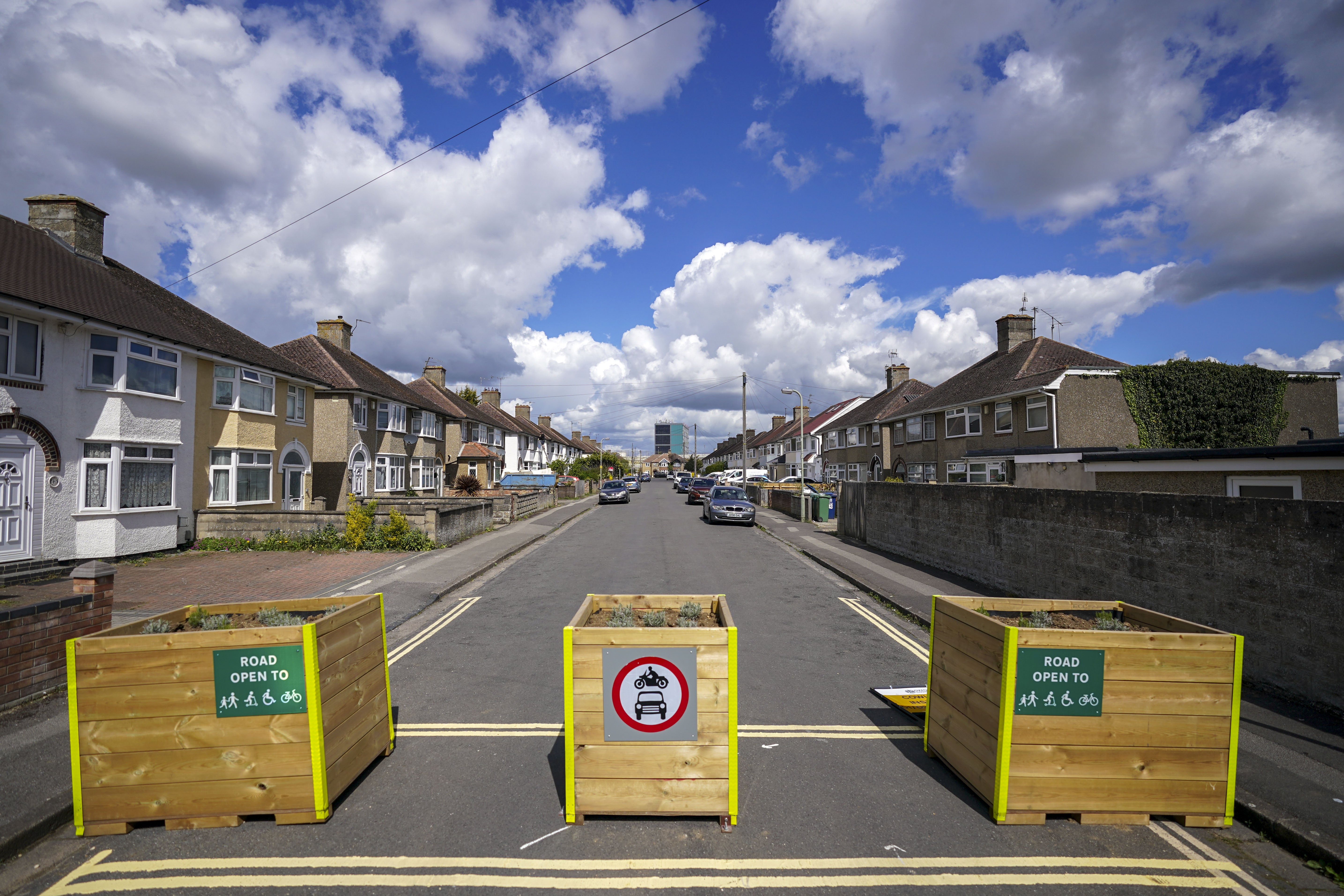Is it the end of the road for low-traffic neighbourhoods?The government is reportedly reviewing the schemes at the behest of the prime minister.
Buoyed by a by-election victory in Uxbridge in which the Tories made hay by opposing Sadiq Khan's expansion of London’s Ultra-low emission zone (Ulez), Rishi Sunak has decided to position himself himself as the "friend of the motorist". Ulez, LTNs, and 20mph zones are all said to be in his sights.
This is not the first time that LTNs – traffic schemes that prevent cars driving through an area by closing roads to motorised traffic – have been targeted by the government.
Despite the schemes being funded and promoted by the Conservative government under Boris Johnson, Tory party has moved to capitalise on discontent that it had more than a passing role in stoking.
In May, transport secretary Mark Harper announced that he would be stripping new LTNs of funding. Now Sunak has announced a “review”. At first glance, it all sounds rather ominous.
But there are a few reasons why a notionally hostile No 10 and Department for Transport are likely to have little effect on the spread of LTNs. In fact, it is likely we'll see more rolled out before the review has even concluded.
The promise to strip LTNs of funding is not quite what it seems. The majority of LTNs are in London, where the government does not allocate cash for walking and cycling schemes because this power has been devolved to Transport for London. Borough councils tell TfL what they want money for, and TfL allocates it in line with Sadiq Khan's transport strategy.
And guess what? TfL has just allocated cash for this coming financial year, including for more LTNs – some even in Conservative-controlled boroughs. The government could try and tie TfL’s hands at the next funding settlement, but this is unlikely to be agreed long before the next election.
It's not even clear the government's announcement will have much of an effect outside the capital. Again, cash has already been allocated to LTNs in previous funding rounds.
Because these things take time to consult on and implement, some schemes funded with cash allocated some time ago are just getting underway. Then there's a general election next year where the policy is likely to change. Voters are unlikely to notice any difference.
This is to say nothing of councils that decide to fund such schemes themselves. Road closures to deal with through-traffic have been common in Britain since at least the 1970s. They are not expensive to implement – one reason they have become a popular tool for councils looking to improve conditions for walking and cycling. Even without central government funding, local authorities are unlikely to stop managing traffic.
So what of Mr Sunak's review? This seems to be a damp squib as well. Asked at a briefing of journalists in Westminster what form the review would take, Mr Sunak's spokesperson said: “We're not imposing a review. We are simply this is simply a fact finding mission to make sure that, you know, the policies that have been put in place, are actually delivering what they say they achieve.”
It is not exactly fighting talk. Mr Sunak may claim be the motorist's friend, but voters looking for an immediate reversal of LTNs are likely to be disappointed.





Join our commenting forum
Join thought-provoking conversations, follow other Independent readers and see their replies
Comments